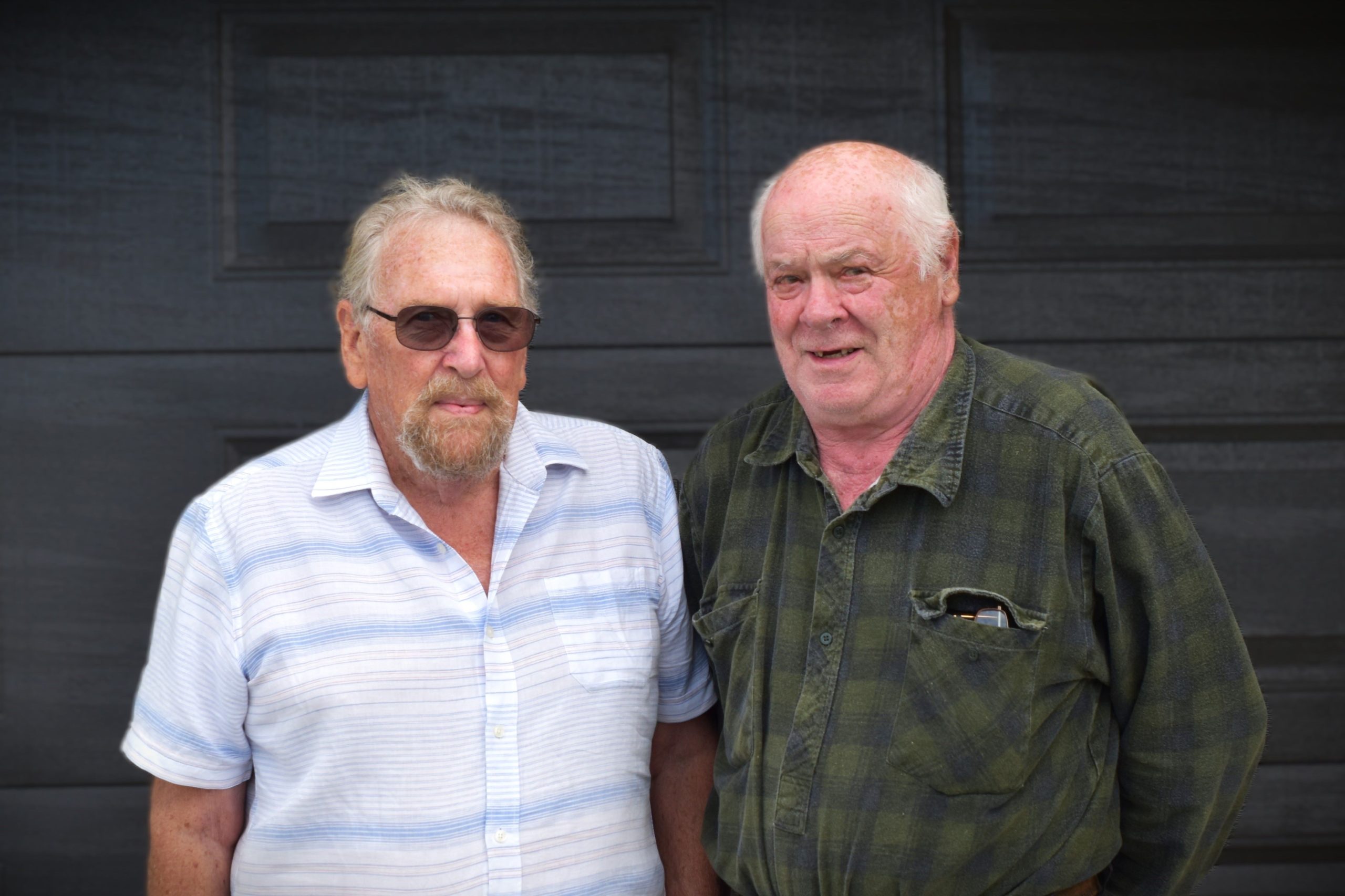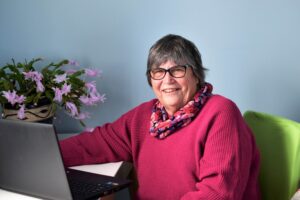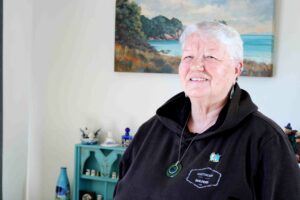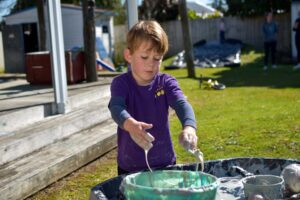The scenes described by Barry Bainbridge and Les Gaskin are a sharp contrast to the comfortable, modern living room they sit in.
The two men, both from Ngatea, are reminiscing about their time in the service of the Crown. Their words conjure up ghosts of men in uniform: training for war; parading around town on R&R; life at sea and on the road.
Barry was a marine engine artificer with the rank Chief Petty Officer. He fondly remembers his Navy years as some of the best in his life.
“I joined in 1958 as a young apprentice… [and] did a total of about 26 years in two wacks,” he said.
“We were in the Malaya-Borneo area when they had that big confrontation. We took part in it but as for seeing anything, I couldn’t see through steel. I was down at the bottom. But without us, nothing. They couldn’t see where they were going, they couldn’t fire the guns, they couldn’t sail.”
Les, meanwhile, was with the Territorials. While he didn’t serve overseas, he still remembers fellow drivers who fell in Vietnam.
“I was a driver with the Army at Linton. If it moved, we had to learn to drive it. We would drive jeeps, trucks, landrovers, tanks, buses… There was not an implement or a vehicle that I couldn’t drive, on the road or anywhere,” he said.
“I never saw service because I was a driver, and when they called for support for Vietnam, because you couldn’t drive vehicles in the jungle, none of the drivers were required. But they did take volunteers, and I had two mates that went over and got a bullet in the back and were killed.”

Anzac Day is sacred to both men. Not only is it a chance to remember their fallen comrades, but it’s also a time for stories.
“[Veterans] could meet their mates, see who’s still alive, and have a bloody good laugh,” Barry said.
“It was their outlet for hanging on to all the atrocities that a lot of them were seeing.”
For Les, it was also a way to connect with his father.
“It was the only time I could get my dad to open up and tell me what it was like,” Les said.
“Because I was in the service, I was allowed to go into the RSA and have a beer with him on Anzac Day, but I’d just sit at the table, I wasn’t allowed to open my mouth at all. And they would reminisce about the atrocities, and I hope like hell it never happens again.”
Les’ father was changed by his time at war, he said.
“My dad went overseas as an artilleryman. He came back on a hospital ship – he had his arm severely damaged by a shell. His four mates that were in the artillery with him were killed, and when he fell, he fell in a bit of a dip and a tank ran over him. We had to have a corset on him every morning and he kept that on for 10 or 15 years,” Les said.
“Dad went to the dawn service, and we never saw him again until about seven o’clock that night. And if you wanted to see him, you’d go up to the RSA … but as I said, you had to hold your bloody tongue.”
This year, as every year, Barry will be attending a dawn service in Ngatea. He goes to remember his fallen friends.
“I’m impressed by the one that they have at the school,” Barry said.
“And you get more and more people coming in and watching, and coming to them with their young kids. Younger ones are starting to realise what their fathers and grandfathers did, and they’re taking a bit of an interest.”
But it’s those moments after, the reuniting of mates at the RSA, when the memories will truly flow.
“Every time I go to the RSA, I think of a lot of people that I know that have died; some have been in the wars, some haven’t,” Barry said.
“It’s camaraderie,” Les said.
“The comradeship within the services was more reliable than out in the general street… You could rely on assistance from other members of your team. You didn’t have to think, ‘Well, is anyone behind me with a knife or a baton or anything like that?’, because there was always someone [there].”





